You are viewing a clip of this video, click to Join. Members, click to Log in.
|
|
||||
When you sign up for Storylogue, you will also enjoy:
Can you explain the core event and the core emotion in the epic?
Aug 24, 2014
What is the purpose of jumping back and forth between multiple storylines within a feature film or TV episode?
Aug 17, 2014
What characterizes a sado-masochistic relationship?
Aug 16, 2014
Do you have any tips for writing a treatment that really sells?
Aug 10, 2014
How does writing an episode for a procedural crime show differ from writing a feature film thriller?
Jul 31, 2014
What's the best way to pitch a new story for television? Should I prepare a full script?
Jul 29, 2014
Do I have to be able to tell a story well verbally in order to be a good storyteller in my writing?
Jul 28, 2014
 Now Playing
Now Playing
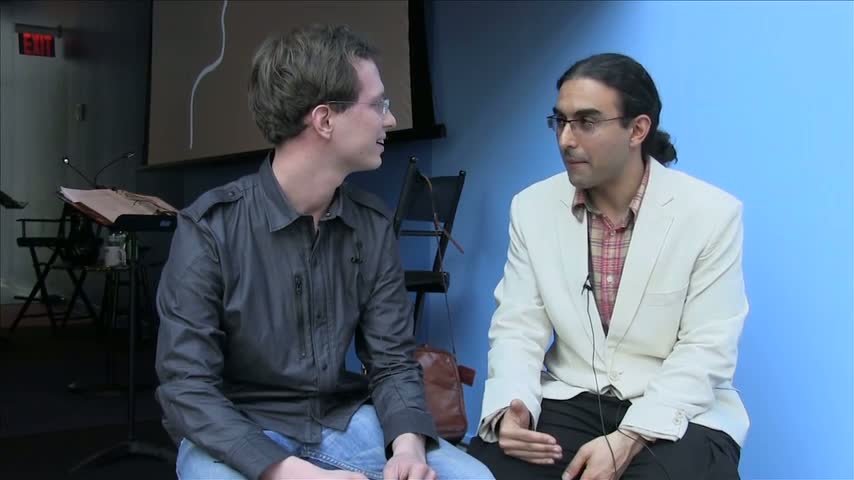
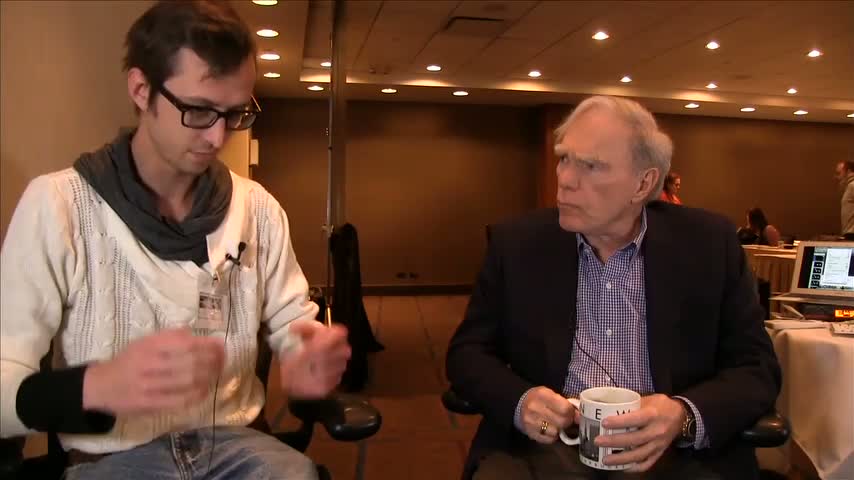
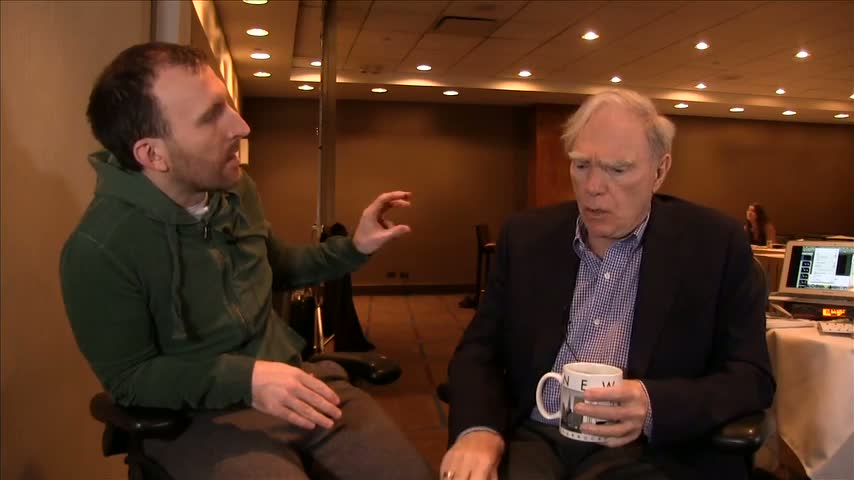
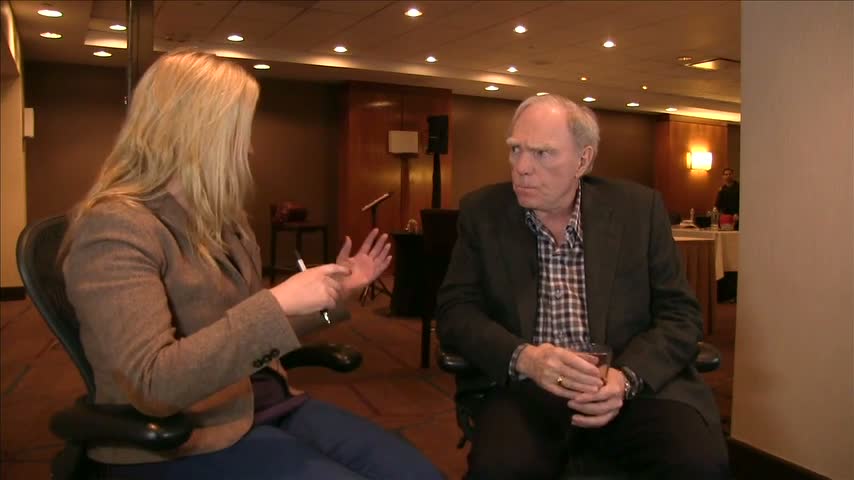
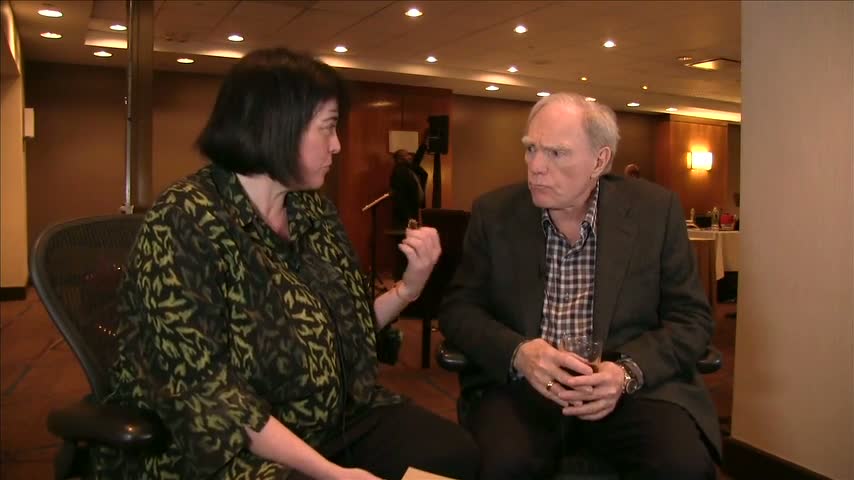
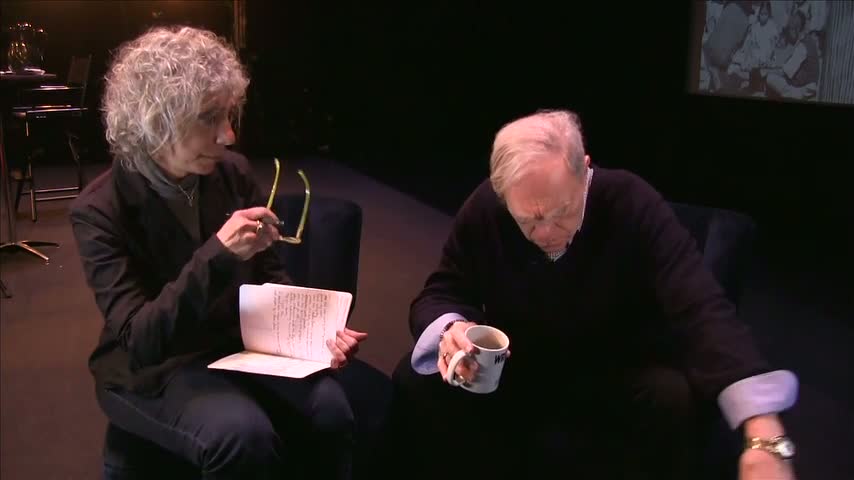
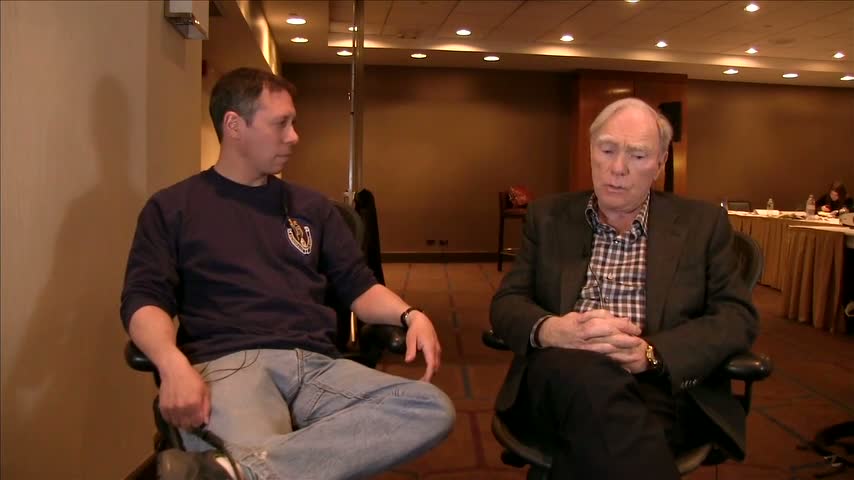
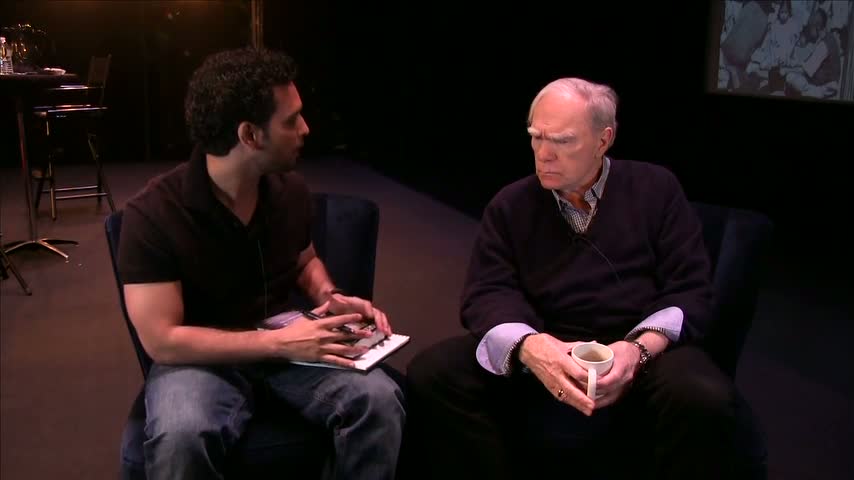
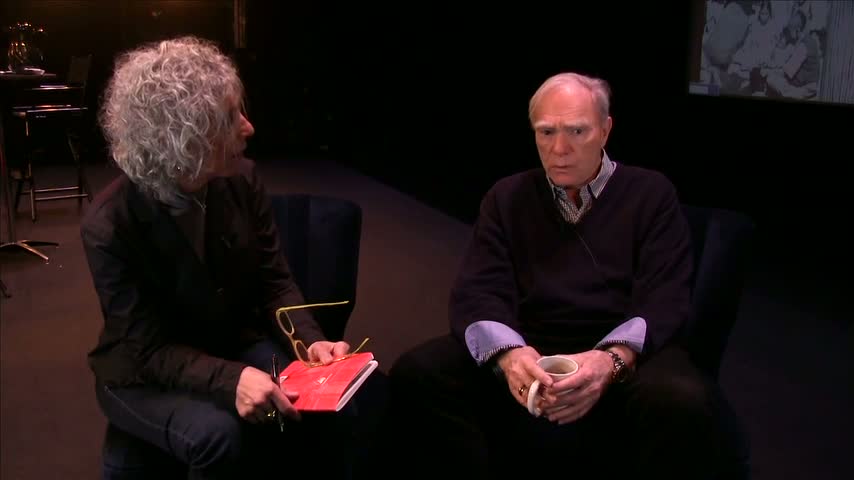
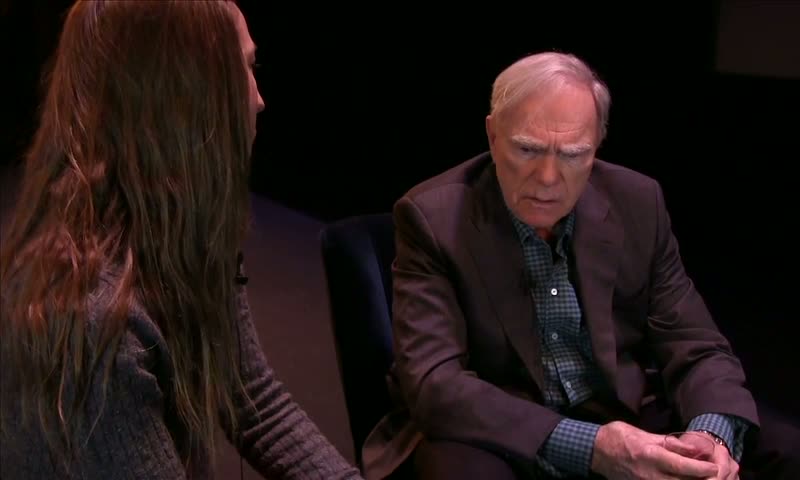
 Requires
Requires
It was fascinating to experience. Just when we’re totally invested in Brolin, he ends up dead. Then a lateral protag is tossed over. Amazing.
After seeing No Country for Old Men and reading The Castle in the Forest, Norman Mailer’s book about Hitler/Evil, written on the eve of his 86th birthday—I felt elation. I know that’s crazy, but both delivered, in my own mind at least, the message that battles between good and evil or good and bad luck are cyclical, not either or. They compete, are fluctuating iota’s, variables that ebb and flow, allowing us to consider the possibility that any one of us might factor into determining the outcome.
The McKee–esque, Value plus Cause equation that I took home from the movie was something like this:
Evil (Javier Bardem) prevails, but could lose at any moment, even after the movie is over, because good and evil (or good luck/ bad luck) are cyclical, neck and neck and can change on a dime.
Movies like Inception, The Social Network, Dark Knight- why you think they work or don't work. That would be helpful.
I wonder if this scene could have been better foreshadowed earlier?
It's like Chinatown: however, that film had a more satisfying ending even if the deeper subtext wasn't understood.
He opens the door, but he is too late. Bardem has taken the money and left. Jones has no more chances to get him, and he's so inconsequential to Bardem, that Bardem doesn't even need to kill him for pleasure.
We get the car crash so our hope of "Maybe bad luck will get him" doesn't linger past the credits and into the car park; we know it won't. And then we return to Jones, retired, still haunted by his oncoming death and his inability to have served any real purpose of good and justice in this world.
But I would say that Jones confronting Bardem in the motel is the obligatory scene and crisis decision. I would also say that Jones is the central protagonist of the story, and that the confusion in audiences (and writers) surrounding this movie is simply this: Brolin's character was so engaging that many people assumed he was the central protagonist, and when he dies off-screen, people were left bewildered as to where to put their emotional core. It's certainly how I felt until I watched it a second time and realised that Jones is clearly the protagonist of the story. It's just that he is so impotent and reactionary, he can feel like he's a bit part.
Anyhow - every time I watch this film I love it a little more. It's marvelous.